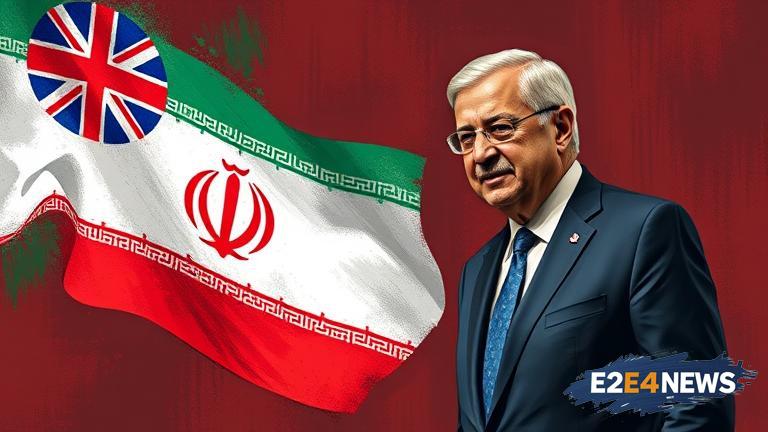In a significant escalation of diplomatic tensions, Australia has taken the drastic step of expelling the Iranian ambassador and two other diplomats from the country. This move comes after Australia accused Iran of being behind a series of antisemitic attacks that have been perpetrated on its soil. The Australian government has stated that it has evidence linking the Iranian government to these attacks, which have targeted Jewish communities and institutions across the country. The decision to expel the diplomats was made after a thorough investigation into the matter, and it is seen as a strong message from Australia that it will not tolerate such behavior from foreign governments. The Iranian government has denied any involvement in the attacks, but Australia remains unconvinced. The expulsion of the diplomats is likely to further strain relations between Australia and Iran, which have been tense in recent years due to disagreements over a range of issues, including human rights and nuclear proliferation. The antisemitic attacks in question have been widely condemned by the Australian government and civil society, and there have been calls for greater action to be taken to protect Jewish communities. The Australian government has pledged to do everything in its power to prevent such attacks from happening in the future and to bring those responsible to justice. The expulsion of the Iranian diplomats is seen as a key part of this effort. The move has been welcomed by Jewish community leaders, who have expressed gratitude to the Australian government for taking a strong stance against antisemitism. However, the Iranian government has responded angrily to the expulsion, accusing Australia of bowing to pressure from Israel and the United States. The situation is being closely watched by other countries in the region, which are concerned about the potential for further escalation. The Australian government has sought to reassure its allies that it is committed to maintaining good relations with other countries in the region, but it is clear that the expulsion of the Iranian diplomats marks a significant shift in Australia’s approach to dealing with Iran. The incident has also sparked a wider debate about the role of foreign governments in perpetrating antisemitic attacks, and the need for greater international cooperation to combat this problem. In recent years, there has been a growing concern about the rise of antisemitism around the world, and the incident in Australia has highlighted the need for governments to take a stronger stance against this form of hatred. The Australian government has pledged to work with other countries to share intelligence and best practices in combating antisemitism, and to support efforts to promote greater understanding and tolerance between different communities. The expulsion of the Iranian diplomats is seen as a key part of this effort, and it is likely to be followed by further action in the coming weeks and months. The situation is complex and multifaceted, and it will require a sustained and coordinated effort to resolve. However, the Australian government is committed to doing everything in its power to protect its citizens and to promote a more just and equitable society. The incident has also highlighted the importance of diplomacy and international cooperation in resolving conflicts and promoting peace. The Australian government has sought to reassure its allies that it is committed to maintaining good relations with other countries, but it is clear that the expulsion of the Iranian diplomats marks a significant shift in Australia’s approach to dealing with Iran. The move is likely to have significant implications for the region, and it will be closely watched by other countries in the coming weeks and months.
